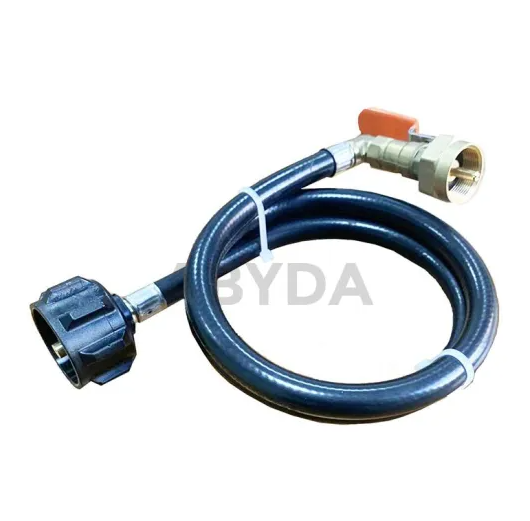- Automobiles & Motorcycles
- Beauty & Personal Care
- Business Services
- Chemicals
- Construction & Real Estate
- Consumer Electronics
- Electrical Equipment & Supplies
- Electronic Components & Supplies
- Energy
- Environment
- Excess Inventory
- Fashion Accessories
- Food & Beverage
- Furniture
- Gifts & Crafts
- Hardware
- Health & Medical
- Home & Garden
- Home Appliances
- Lights & Lighting
- Luggage, Bags & Cases
- Machinery
- Measurement & Analysis Instruments
- Mechanical Parts & Fabrication Services
- Minerals & Metallurgy
- Office & School Supplies
- Packaging & Printing
- Rubber & Plastics
- Security & Protection
- Service Equipment
- Shoes & Accessories
- Sports & Entertainment
- Telecommunications
- Textiles & Leather Products
- Timepieces, Jewelry, Eyewear
- Tools
- Toys & Hobbies
- Transportation
Are all LPG regulators the same?
LPG (liquefied petroleum gas) regulators play a pivotal role in the safe and efficient operation of LPG-fueled appliances and systems. However, with various options available on the market, it's essential to understand that not all LPG regulators are created equal.
1. Understanding LPG Regulators:LPG regulators are devices designed to control the flow and pressure of gas from the LPG cylinder to the appliance. They reduce the high pressure of the gas stored in the cylinder to a safe and consistent level suitable for the appliance's operation. Regulators ensure that the gas is delivered at the correct pressure for efficient combustion while preventing damage to the appliance due to excessive pressure.
2. Differences Between LPG Regulators:While all LPG regulators serve the same fundamental purpose, they can vary in terms of design, features, and performance. Some key differences to consider include:
Type of Gas: LPG regulators are specifically designed for use with liquefied petroleum gas. However, there are different types of LPG, such as propane and butane, each requiring a regulator calibrated for the specific gas type.
Flow Rate: LPG regulators are available in various flow rates to accommodate different appliance requirements. It's essential to select a regulator with a flow rate suitable for the appliance it will be used with.
Pressure Rating: LPG regulators are rated for maximum inlet and outlet pressures. It's crucial to choose a regulator with a pressure rating compatible with the pressure requirements of the appliance and the LPG cylinder.
Construction Materials: LPG regulators are constructed from materials such as brass, aluminum, or zinc. The choice of materials can affect the regulator's durability, resistance to corrosion, and suitability for outdoor or indoor use.
Further reading:
Revolutionize Your Plumbing: Switch to Din Globe Valve?"Explore how din globe valves can transform traditional plumbing systems, providing better control and efficiency.
Key Questions to Ask When Ordering Stainless Steel Gate Valve
How Does Check Valve From China Manufacturer Work?
Mastering the Benefits of Electric Drive Valves
How Does a ball valve Work?
Ultimate Guide to Ball Gate Valves: Benefits, Installation Tips & FAQs
10 Questions You Should Know about Din Lift Check ValveSafety Features: Some LPG regulators are equipped with additional safety features, such as excess flow valves (EFVs) and pressure relief valves (PRVs), to mitigate the risk of gas leaks and overpressure situations.
3. Importance of Choosing the Right LPG Regulator:Selecting the right LPG regulator is crucial for several reasons:
Safety: Using the wrong regulator can lead to gas leaks, overpressure situations, and potential hazards. A properly sized and calibrated regulator ensures safe and reliable operation of LPG-fueled appliances.
Performance: The correct regulator ensures that the appliance receives gas at the appropriate pressure for efficient combustion and optimal performance. Using an improperly sized regulator can result in poor appliance performance and increased fuel consumption.
Durability: Choosing a high-quality regulator constructed from durable materials helps ensure long-term reliability and resistance to corrosion, prolonging the lifespan of the regulator and reducing the risk of failures or malfunctions.
4. Conclusion:In conclusion, not all LPG regulators are the same, and selecting the right one is crucial for safe, efficient, and reliable operation. When choosing an LPG regulator, consider factors such as gas type, flow rate, pressure rating, construction materials, and safety features to ensure compatibility with the appliance and the LPG system. By investing in the appropriate regulator, users can enjoy peace of mind knowing that their LPG system is operating safely and efficiently.
How Does Shower Faucet Kitchen Sink Work?
How can a rotary table enhance drilling?
Mud Pumps Parts Maintenance: Tips vs. Tricks for Success
Exploring the Benefits of Using Beam Pumping Unit for Oil Sucking: Oil Sucking Machine and Oil Drilling Rig
The Benefits of Using Hyperpool Equipment: A Complete Guide
How to choose the best 28mm Pump Gate Valve?
Company Insight
Next
None
Related Articles
If you are interested in sending in a Guest Blogger Submission,welcome to write for us!













Comments
0